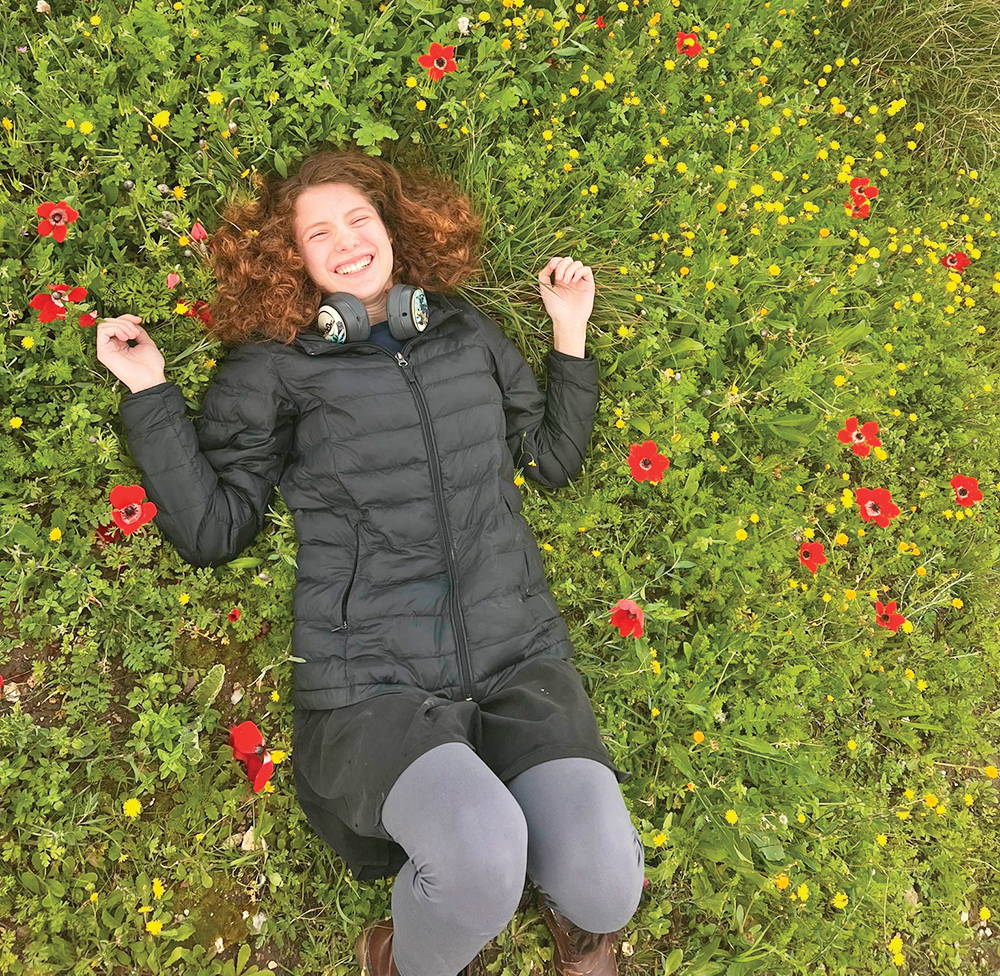
Reflecting on a life-changing experience at Midreshet Amudim, Gabi Kronenberg is determined to end her year on a high note to prepare for NYU next fall. Gabi attended SAR for high school and currently lives with her family in Riverdale, where they attend Young Israel Ohab Zedek.
What drew you to Midreshet Amudim?
This year was my last year that I could spend completely devoted to Judaism in an environment where my Jewish education was not optional. When I am at NYU, everything will have to be a choice made of my own free will. Whether it be minyan, keeping Shabbat, spending time with the Jewish community, it is all going to be up to me. So, I wanted a place that took Judaism in a serious and academic way. I hoped to pave my path with a year dedicated to religion, building a foundation of choice to my Judaism that will carry me through NYU and beyond.
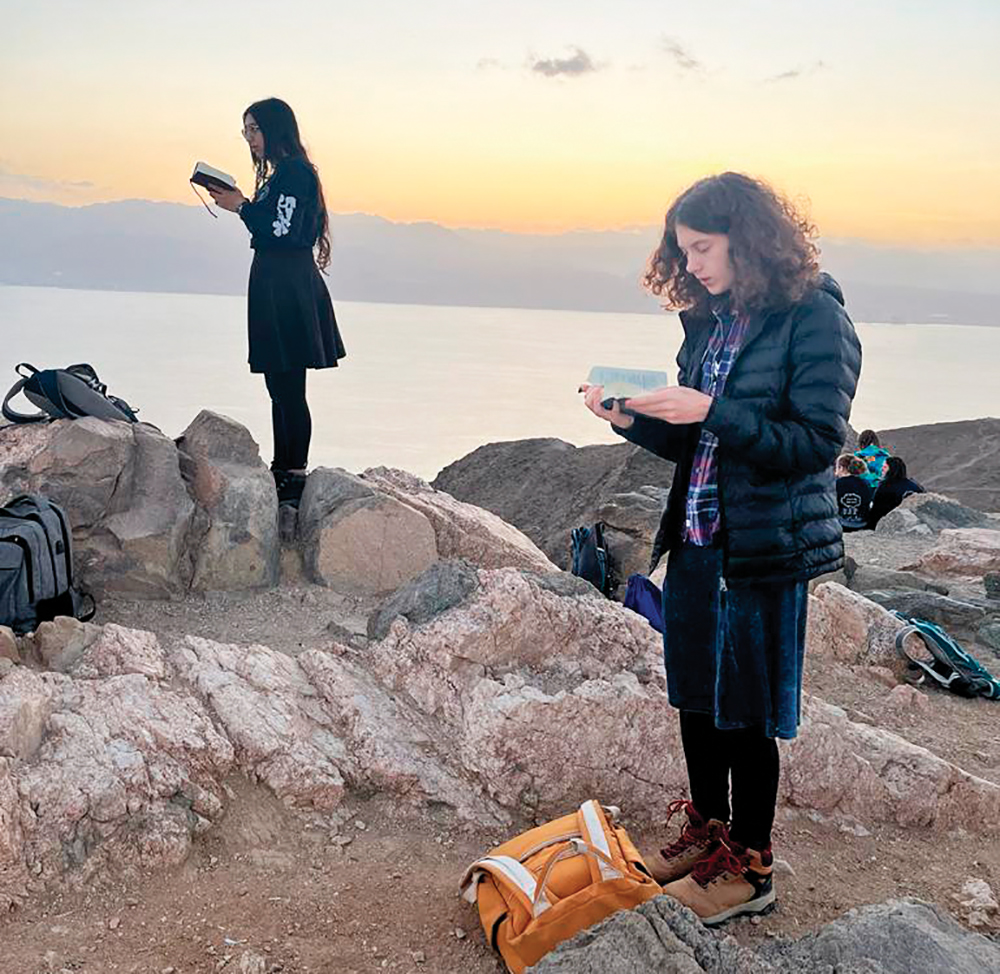
That sounds awesome. In what way does Amudim provide the “academic Judaism” that you wanted?
Well, Amudim is incredibly rigorous and they hold us to a very high standard. They treat you like an adult and provide you with your own apartment to live in, but that means you are expected to act like an adult. Show up on time and learn; do your own laundry, groceries, chores and Shabbat plans; and learn the public transit system. Therefore, the classes are also challenging and they expect us to really delve into complicated topics and form a nuanced and advanced understanding of the subject matter in a way that wouldn’t be expected in high school and many other midrashot.
Those classes sound intense. Was there any teacher you really connected with?
I wouldn’t say there was any one particular teacher. I really appreciated coming into midrasha on the first day and hearing Dr. Goldstein’s opinion on the matter. Dr. Goldstein told us that she does not “want you to be me; you don’t always have to agree with what I think, and I don’t think you always should. If you did, there would be something wrong.” That mindset really helped me grow and spread my wings, and to always dig deeper into an issue and not to just follow the majority. Amudim has a lot of “non-normative” teachers and really helped me to grow this mindset. I loved all of my teachers, and they all showed me their own unique way of thinking, and I synthesized it all into my own method that works for me.
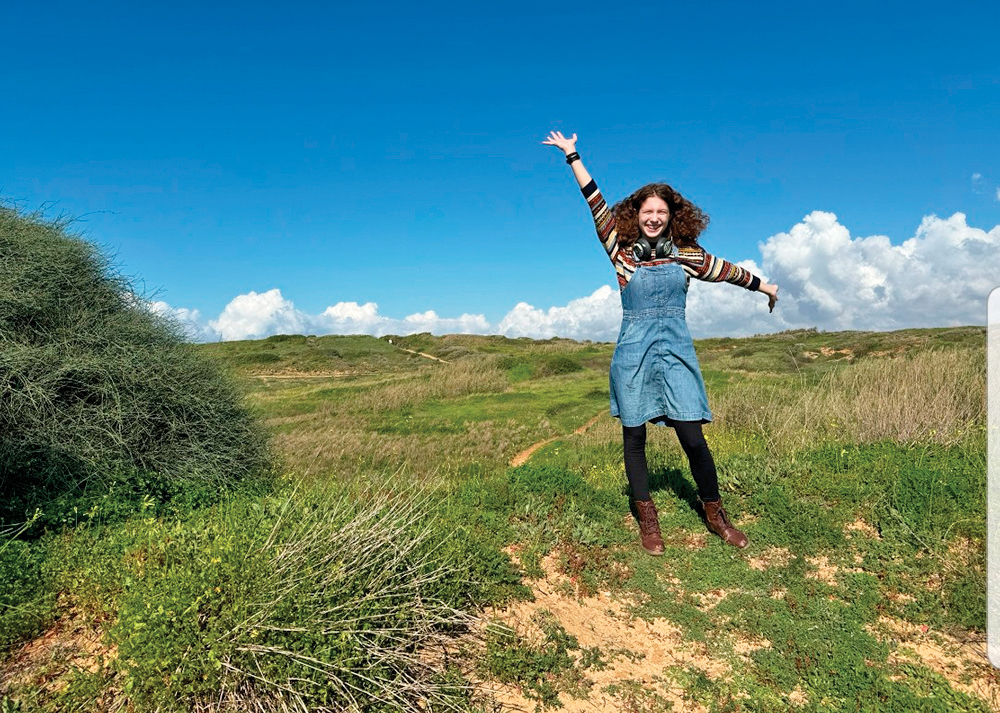
That’s great to hear. Have there been any favorite classes?
Once a week we had a halacha morning seder for three hours, and I learned to love the subject. In high school, I didn’t really have a halacha class; my only exposure to it was whenever we did a little bit here and there per semester. I really liked that every halacha we learned really pertained to my day-to-day life and I could immediately implement whatever I learned in class. On a really basic level I think I could connect halacha because I am physically doing it. I loved it so much that during night seder I made time to learn halacha on my own.
How else did your year shape you?
I came into my own as an independent adult. Coming into the year, I didn’t know how to do basic things like cook, but now I am a lot closer to mastering all of these necessary life skills. Amudim’s demanding schedule also required me to refine my time management skills and I can now keep track of my bad habits much more easily and spend my time productively. I have also developed a much deeper and more experienced view of the world and my Judaism. I learned how to make my own informed decisions based on the facts at hand. That goes for life, Judaism and anything else you can think of.

I also gained an appreciation for Israel and why it is vital for the Jewish nation’s existence. That may have more to do with the war than the curriculum, but now I understand why we need our own place. I guess you could say I just feel it in my kishkes!
What do you appreciate about living in Israel?
Well, I want to clarify that I don’t like the push that you must move to Israel—I don’t think that’s true. That being said, there are a lot of things I really like. I love how green it is, I love the history, I love the architecture, and I love everything just being really old. I especially enjoyed being able to make my own plans, and just decide to go on an errand, just go out or just go somewhere because I want to. There’s no one stopping me and thanks to public transit the city is in the palm of my hand. My adventures have helped me meet so many new people and really feel the Jewish diversity in Israel.
Where is your go-to place to relax?
I like to go to all of the parks; there’s a park across the street, and I go there a lot. But like I said before, sometimes I just walk for 30 minutes and then put on Google Maps to get home. I love the non-gridded city and being able to find those little alleyways and shortcuts—and getting to learn the city and make it mine.
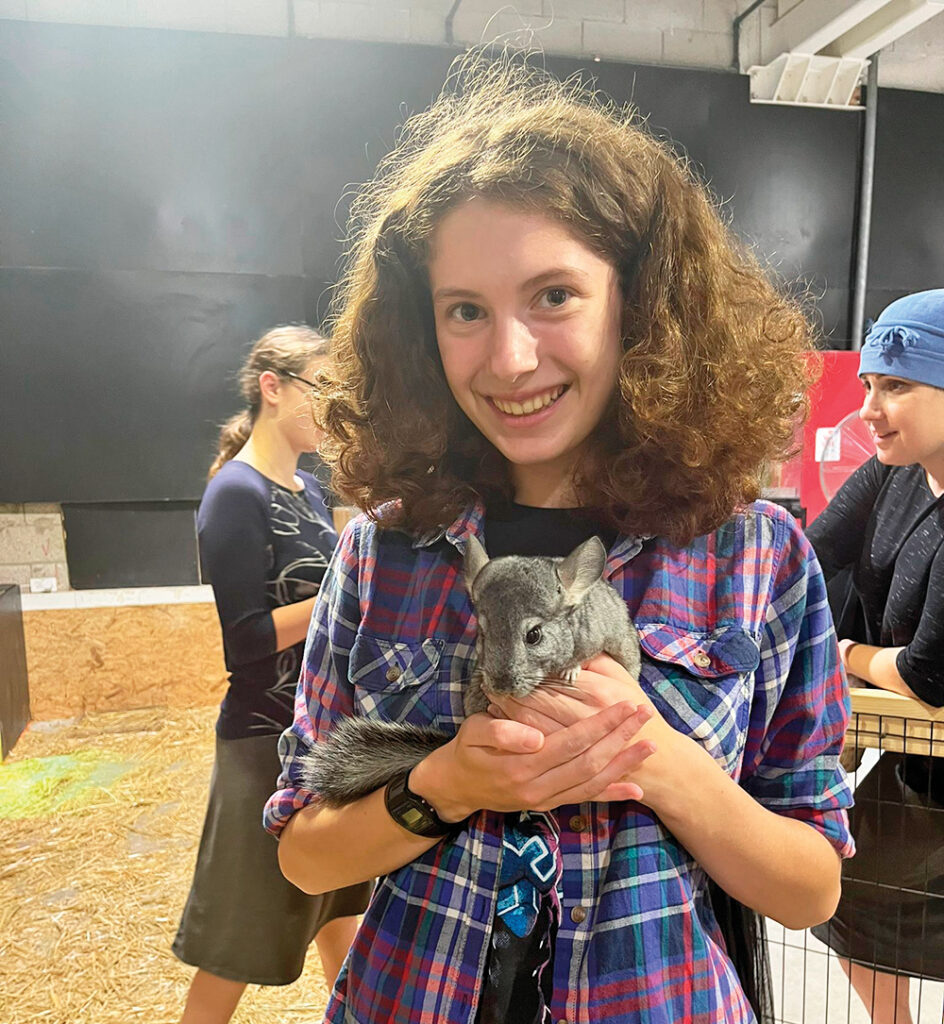
Biblical Zoo.
How has learning in Israel impacted you?
I have learned to question things a lot more, but not just question endlessly. Not looking for answers is destructive, and I have also learned how to find those answers. In my opinion, a good teacher doesn’t tell me what they think but gives me the sources and tells me to think for myself, which is definitely the case at Amudim.
What has been the highlight of your shana aleph?
That week of Sukkot break, I stayed in Israel, and I was on a roll. I was making my own plans, and really getting into the swing of things. It felt like I was ready to really get my year started after Sukkot. Even after the war broke out, I made the choice to stay and continue that mindset and maximize my year, not letting anything stop me.
What’s been your favorite tiyul?
I loved Chanukah in the Old City! It was absolutely beautiful and I met so many different kinds of people. Charedim, Dati Leumi, non-religious Jews, non-Jews; I saw the whole breadth of what Israel and Jerusalem mean to the world, regardless of religion. The Old City and everyone wanted to come and experience; it transcended divides and was an experience for everyone.
How has this year prepared you for NYU and beyond?
Especially with the current political situation the year gave me a sense of identification in regards to Israel. Last year I would have been quiet and not cared much if I heard people denounce Israel, but now that kind of stuff bothers me.
I also learned how to create my own schedule and hold myself accountable for the way I spend my time. Perhaps most importantly, if I want to lead a Jewish life, I need to make that choice to incorporate Judaism into it, and this year was that choice.
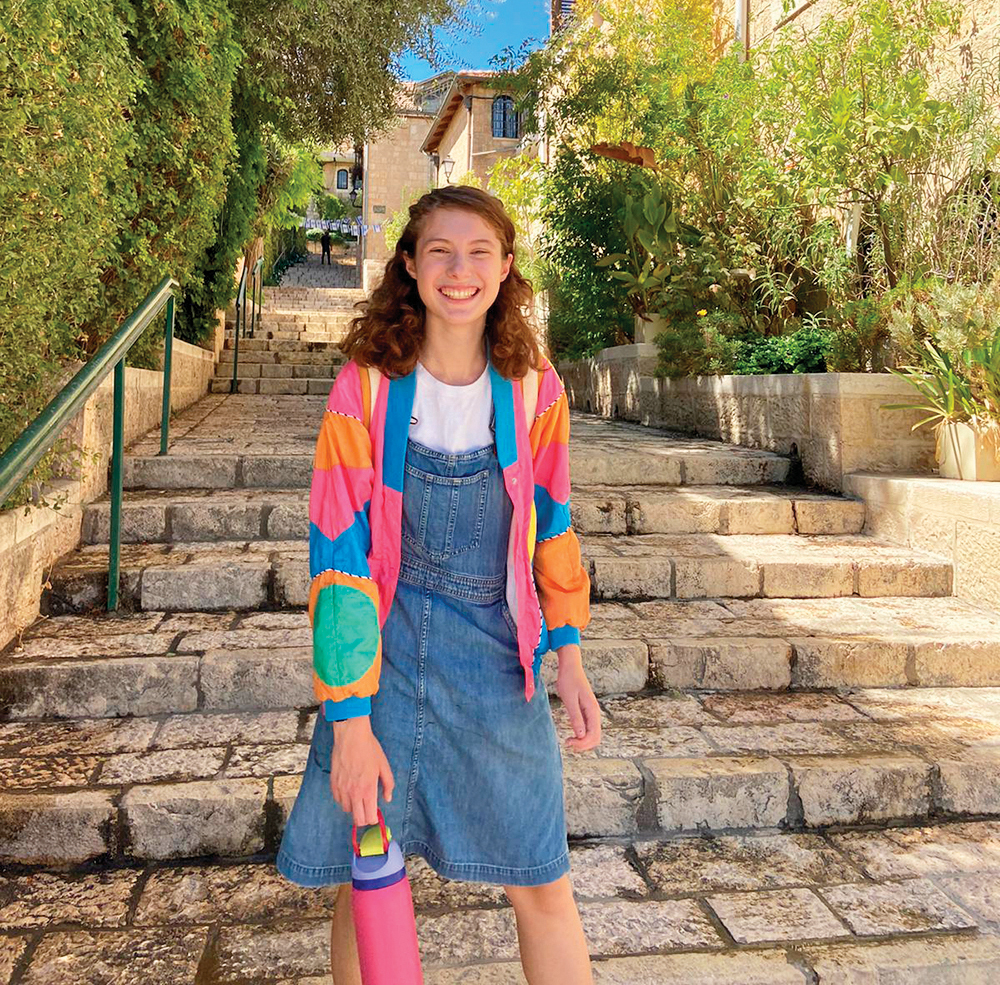
That’s great to hear. What advice would you give to yourself from a year ago and why?
I’d say, “You don’t know what this year is going to look like. It will be different, and it will be hard, but you will gain a lot of valuable experience. There are going to be a lot of things you will question and form new opinions on, and that’s how you grow.”
At first I wasn’t sure if I was going to take a gap year, but no one I talked to, no matter what the program, said they had a bad year. I was expecting a normal year of learning, like in high school, and had this image in my mind of the year, but that couldn’t be further from the truth.
I learned there were things I thought I’d like but did not and vice versa. There are some beliefs I thought I would never blink twice at, but then I really looked into them. There is always room for change if you let it happen.
What advice would you give to an incoming shana aleph student?
Amudim is hard; that’s what you signed up for. If you came to Amudim you came to work. Amudim does not have a lot of girls because most people don’t want to work. But Amudim teaches you that being productive, learning and growing can be fun and enjoyable. Additionally, even if they aren’t always fun and enjoyable, they are still important. That hard work is important.
Also, for your own sake, get a physical Rav Kav. People assume they can use their phone but it can go so wrong.
How do you plan to maximize your last month in Israel?
I am working on getting organized and giving myself ample time to cram in all of the learning I’d like to do.
Sam Savetsky, of Bergenfield, is a shana bet student at Yeshivat Migdal HaTorah in Modi’in. For interview inquiries, he can be reached at [email protected].












